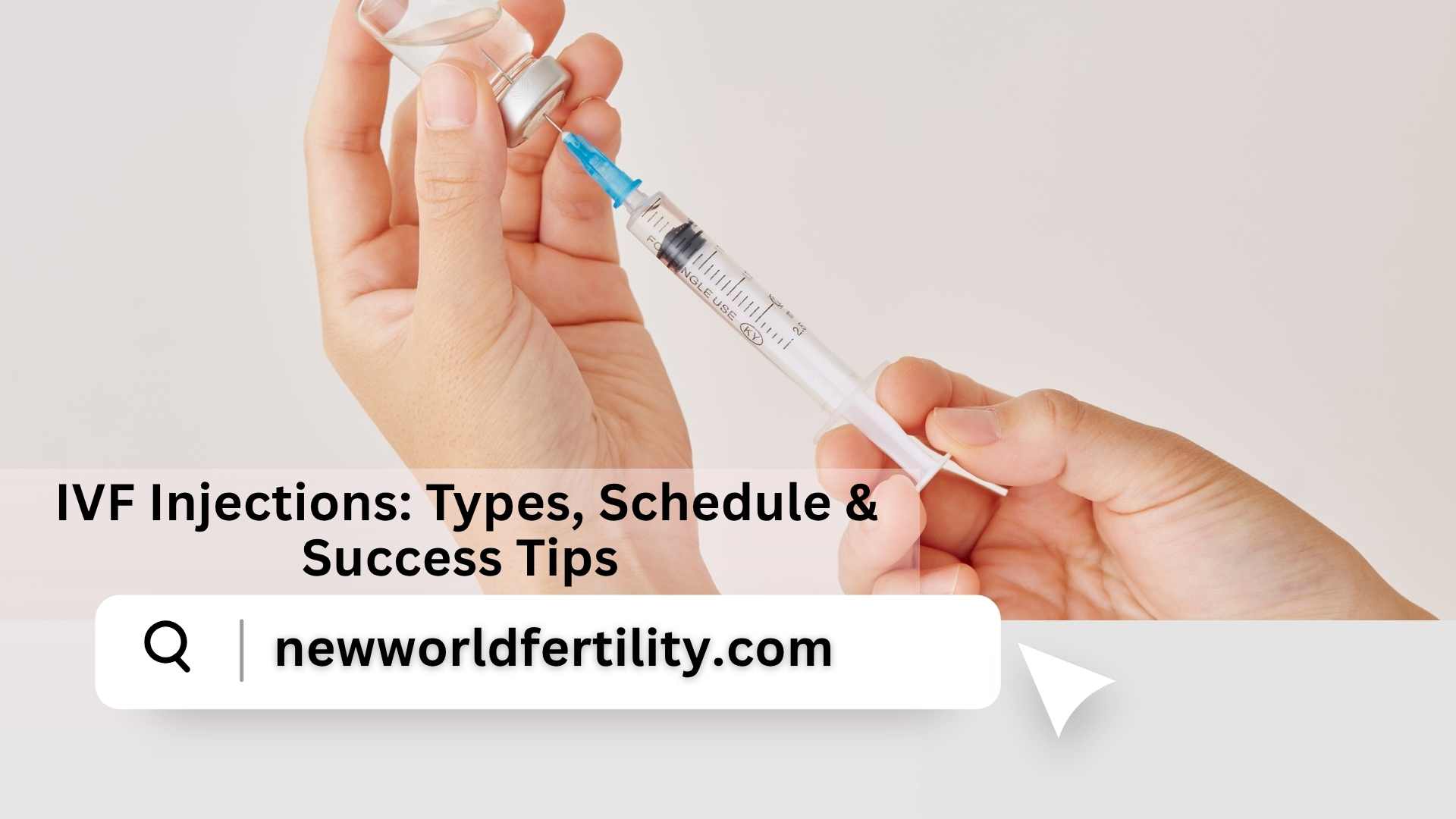IVF injections are crucial in stimulating egg production and preparing the body for a successful embryo transfer. Understanding the types, schedule, and effects of these injections can help patients confidently navigate the IVF journey. At New World Fertility, we ensure that patients receive the proper guidance for administering IVF injections effectively.
Types of IVF Injections & Their Functions
1. Ovarian Stimulation Injections
Gonadotropins (FSH & LH): Stimulate the ovaries to produce multiple eggs.
Human Menopausal Gonadotropin (hMG): A combination of FSH and LH for egg growth.
2. Ovulation Suppression Injections
GnRH Agonists (Lupron): Prevent premature ovulation by suppressing natural hormone production.
GnRH Antagonists (Cetrotide, Ganirelix): Block LH surges to control egg release timing.
3. Egg Maturation & Trigger Shot
hCG Injection (Ovidrel, Pregnyl): Final egg maturation before retrieval.
4. Progesterone Support Injections
Progesterone (in oil or gel form): Supports the uterine lining for implantation.
IVF Injection Schedule & Dosage
Day 2-3: Start ovarian stimulation injections.
Day 5-7: Begin ovulation suppression injections.
Day 10-12: Trigger shot for egg maturation.
Post-retrieval: Progesterone support for implantation.
Pregnancy Confirmation: Continue progesterone if pregnancy is confirmed.
Common Side Effects & Management Tips
Mild Pain & Swelling: Apply ice before injections and use warm compresses after.
Bloating & Mood Swings: Maintain a balanced diet and stay hydrated.
Bruising & Redness: Rotate injection sites to avoid irritation.
Fatigue & Headaches: Rest adequately and engage in light activities.
How to Maximize the Effectiveness of IVF Injections
Follow a Strict Schedule: Timely administration is crucial for success.
Stay Hydrated & Eat a Fertility-Friendly Diet: Nutrients support hormone balance.
Practice Proper Injection Techniques: Follow medical guidance to avoid errors.
Manage Stress: Yoga, meditation, and light exercise can help improve outcomes.
FAQs About IVF Injections
1. Are IVF injections painful?
Most injections cause mild discomfort, but proper techniques help minimize pain.
2. What if I miss an IVF injection?
Contact your fertility specialist immediately for guidance on adjustments.
3. Can I take IVF injections at home?
Yes, many patients self-administer under medical supervision.
4. How long do IVF injections last?
The injection phase typically lasts 10-14 days before egg retrieval.
5. Can lifestyle changes improve IVF injection effectiveness?
Yes, a healthy diet, stress management, and proper sleep enhance the success of fertility treatment.
Conclusion
IVF injections are a vital component of the fertility journey. Understanding their types, schedule, and side effects can help patients confidently manage the process. At New World Fertility, our experts provide personalized support to optimize IVF success rates. For guidance on fertility treatments, visit our website or consult our specialists today!

 Oct-29-2025
Oct-29-2025